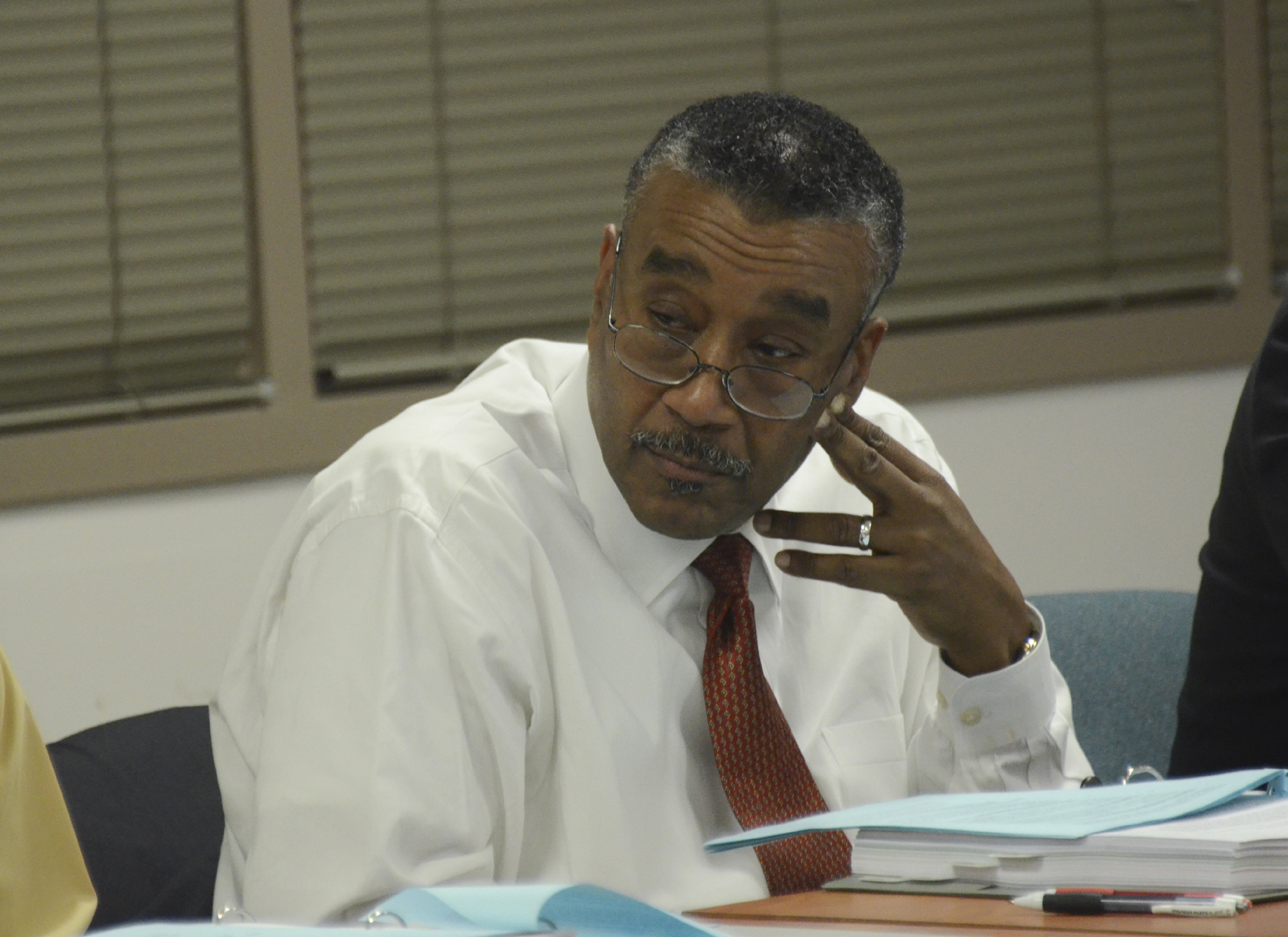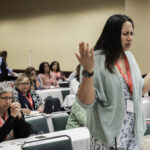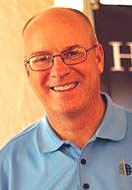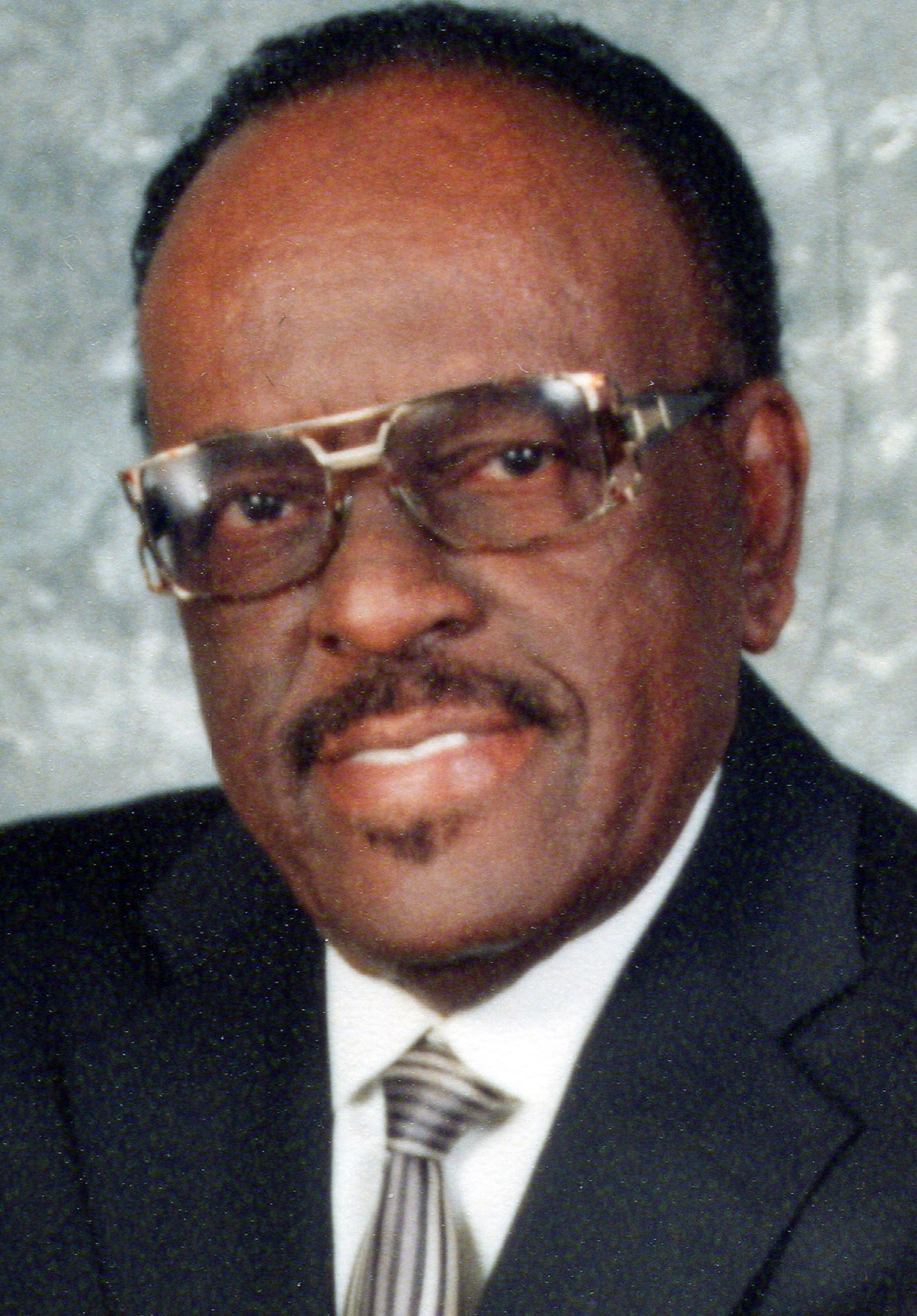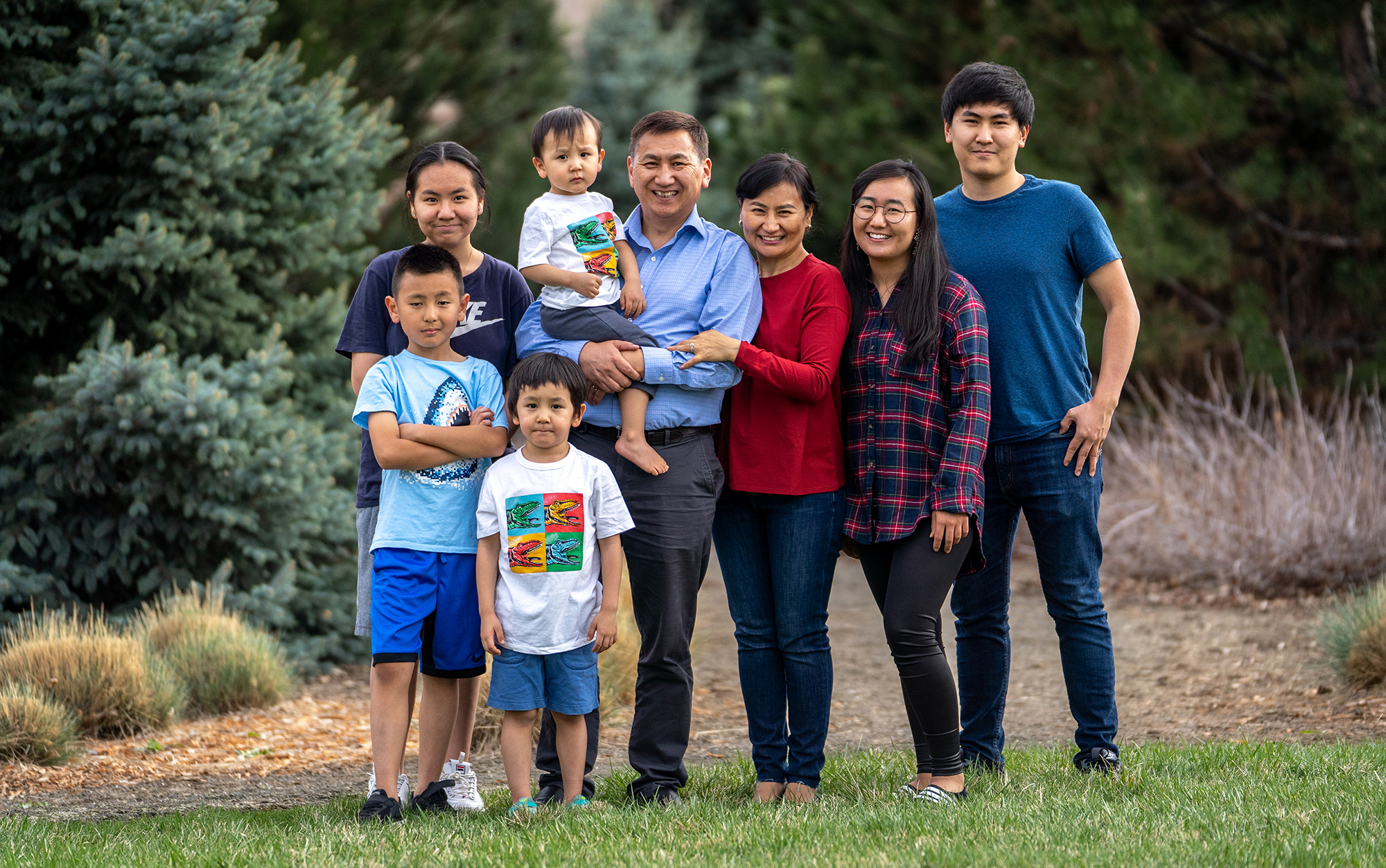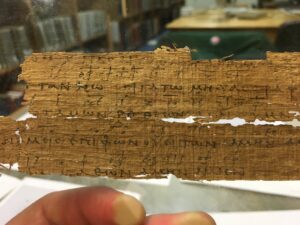
NASHVILLE, Tenn. (BP)–The Southern Baptist Convention’s Executive Committee released a review of ethnic church and ethnic church leader participation in the convention Feb. 22, setting forth recommendations “to foster conscious awareness of the need to be proactive and intentional in the inclusion of individuals from all ethnic and racial identities within Southern Baptist life.”
Based on a motion presented at the 2009 SBC annual meeting in Louisville, Ky., an Executive Committee study group examined “how ethnic churches and ethnic church leaders can be more actively involved in serving the needs of the SBC through cooperative partnership on the national level.”
The group reviewed all resolutions adopted at annual meetings regarding ethnic participation and relationships; analyzed the ethnic identities of program personalities on the platform at recent annual meetings; studied the ethnic identities of entity staff, mission board personnel, seminary faculty and recent graduates; and heard testimonies from ethnic leaders.
Also part of the study was a review of the numbers of ethnic congregations and ethnic members within the SBC, pictorial representations in convention literature, coverage of ethnic diversity in convention publications and a review of the ethnic identities of convention committees, boards and commissions.
The Executive Committee found that on numerous occasions through resolutions adopted at SBC annual meetings, the convention expressed a desire to see “greater ethnic participation” in SBC life. The report included 11 relevant resolutions dating back to 1961.
“The convention has seen steady, significant growth in the number of churches and church-type congregations identified as primarily non-Anglo congregations,” the report said, adding that since churches have never been asked to report on the ethnic composition of their membership, it was impossible to know with certainty the number of individual church members of any ethnic group.
“In spite of the convention’s frequent affirmations expressing its desire to see greater ethnic involvement and participation in SBC life, the convention has not adopted a consistent means by which it can ascertain participation of ethnic churches and church leaders in convention life,” the report said.
Anecdotal testimony indicated that the percentage of ethnic church leaders involved in visible, elected roles in SBC life has lagged behind the percentage growth in the number of ethnic congregations.
“One reason for such a perceived lag, according to testimony given by ethnic fellowship leaders, is that many of our ethnic brothers and sisters have been more active in their respective ethnic fellowship ministries than in local Baptist associational ministries and/or cooperating Baptist state convention ministries,” the report said.
Another reason for the perceived lag, the Executive Committee found, is that the convention had failed to develop a broad-based strategy to keep the issue before convention leaders in the nominating and hiring processes at various levels of SBC life.
The Executive Committee, though, affirmed past processes in which the concept of “quotas” was resisted, choosing instead to support the selection of Southern Baptists “who are well qualified, without regard to any of the unalterable personal characteristics which God has bestowed upon them.”
In light of their findings, the Executive Committee recommended that the Southern Baptist Convention meeting in Phoenix in June request that:
— entities annually submit a descriptive report of participation of ethnic churches and church leaders in the life and ministry of each entity.
— the SBC President’s Notebook given to each newly elected president encourage him to “give special attention to appointing individuals who represent the diversity within the convention, and particularly ethnic diversity” among his appointees to various committees.
— the SBC president report the total number of appointees that represent the ethnic diversity when names for committees are released to Baptist Press.
— the SBC President’s Notebook encourage the president to encourage the selection of annual meeting program personalities that represent the ethnic diversity within the convention.
— the Committee on Order of Business consider the ethnic identity of program personalities for annual meetings.
— the Committee on Nominations form be amended to provide a place where a nominee may indicate his or her ethnic identity.
— the Committee on Nominations include in its annual report the number of individuals among its nominees that represent the ethnic diversity within SBC life.
— entities give due consideration to the recruitment and employment of qualified individuals who reflect well the ethnic diversity within SBC life.
— the Executive Committee, through its various publications and news outlets, continue to provide news coverage of interest to individuals of all ethnic interests and to highlight what God is accomplishing through Baptists of “every tribe and tongue and people and nation.”
— the Executive Committee receive a report from EC staff each year during its February meeting concerning the participation of ethnic churches and ethnic church leaders in SBC life.
Furthermore, the Executive Committee recommended that the convention “respectfully request the Southern Baptist Pastor’s Conference and other groups which meet as part of the larger event of the Southern Baptist Convention annual meeting be sensitive to the desire of our ethnic brothers and sisters in Christ to see and hear individuals from their respective cultural heritages address attendees of these related groups.”
Also, the Executive Committee recommended that the convention “strongly encourage church workers and leaders from all ethnic backgrounds within Southern Baptist life to involve themselves to the highest level possible in associational life and through state convention ministries so that their participation in broader denominational life becomes the platform from which their greater involvement in visible roles of leadership in the convention will naturally follow.”
In related news, the Executive Committee quitclaimed to the American Baptist Theological Seminary and released deed restrictions on two tracts of land the convention deeded in 1977 and 1982 to the seminary with restrictions.
The restrictions “have served their purpose, and the seminary and the American Baptist College are now in need of unencumbered use of the property to effectuate their purposes, which include the preparation and printing of Christian literature in a facility to be built on a portion of the property in question,” the Executive Committee said.
The seminary was organized in 1924 “for the training of Negro ministers and religious workers” and was owned jointly by the National Baptist Convention and Southern Baptist Convention, with the original buildings built by the SBC. The property includes a tract of 16 acres which was owned by the Holding Board of the two conventions until 1977 and an undeveloped tract of 38 acres deeded to the seminary in 1982.
Southern Baptists financially supported the American Baptist Theological Seminary until 1995, when as part of the Covenant for a New Century the convention decided that the American Baptist Theological Seminary was a “legacy of an age of racial discrimination, when African-American students were not allowed to enroll in the convention-supported seminaries.”
The Southern Baptist Convention moved further toward racial inclusion by granting sole responsibility for the institution to the National Baptist Convention, noting that Southern Baptists “are convinced that this is no longer the appropriate structure for Southern Baptist support of African-American Baptist leadership.”
Under the conditions of the deeds drafted in 1977 and 1982, the seminary “may not use or allow the use of the property other than exclusively for the purpose of training persons in Christian theology as interpreted by Baptist doctrine.” A violation of that condition would result in the property being transferred to the Southern Baptist Convention.
American Baptist Theological Seminary asked the Executive Committee to release the rights of the SBC in regard to the first tract of land because the seminary wants to build a publishing house, which would violate the deed restrictions.
The Executive Committee, acting on behalf of the Southern Baptist Convention, voted Feb. 22 to authorize EC President Frank Page to execute and deliver a quitclaim deed to the seminary, thereby waiving property rights of the convention in this situation. Though not specifically requested, the Executive Committee opted to quitclaim the second tract of land as well.
–30–
Erin Roach is an assistant editor of Baptist Press.
